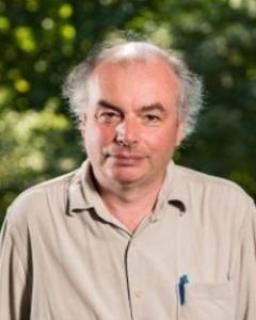
Position: Visiting Fellow
School and/or Centres: Humanities Research Centre
Location: Birkbeck College London
Professor Crawford's research activities mostly lie in the fields of space exploration (especially lunar exploration), and the new science of astrobiology (the search for life in the Universe).
Lunar exploration
Profesor Crawford's lunar exploration work includes both the remote sensing of the lunar surface and the laboratory analysis of lunar samples. In the remote sensing area, he was a co-investigator on the D-CIXS instrument (Demonstration of a Compact Imaging X-Ray Spectrometer), which orbited the Moon on ESA's SMART1 spacecraft between 2004 and 2006, and he chairs the Science Team for the Chandrayaan-1 X-Ray spectrometer (C1XS) that flew on India's Chandrayaan-1 lunar mission in 2008-9. These instruments were designed to provide compositional information about the lunar surface, and in particular the abundances of magnesium, aluminium and silicon, which will be used to constrain models of lunar evolution.
His work with lunar samples is mostly aimed at understanding the geological evolution of the lunar crust and mantle, and helps 'ground truth' the remote sensing data obtained from orbit.
Astrobiology
In addition to his lunar science interests, He has long-standing interests in astrobiology - the study of the astronomical and planetary context of the origin and evolution of life, and what this tells us about the likely prevalence of life elsewhere in the Universe. In particular, his group is studying 'extreme' environments on Earth, notably in Iceland, which may be analogous to past or present habitable environments on Mars.
Astronomy
He came to planetary science from an earlier 15-year career in observational astronomy, where he conducted studies of the interstellar medium (i.e. the gas and dust between the stars from which new stars and planets ultimately form), and also circumstellar disks of the kind thought to be planetary systems in an early stage of formation.
Space exploration
Professor Crawford has long had an interest in the future of space exploration. He is convinced that space exploration and development will prove to be of central importance for the future of humanity. In 2007 he was a member of the UK Space Exploration Working Group, which recommended increased UK involvement in global space exploration. In addition to its obvious scientific importance, I think an ambitious human space programme will offer significant social and cultural advantages, and these arguments are developed in some detail in the 'space policy' publications listed below (and on the Case for Spaceweb page that he maintains).
Expanding Worldviews: Space Exploration, Astrobiology, and the Socio-Political Implications of the Cosmic Perspective